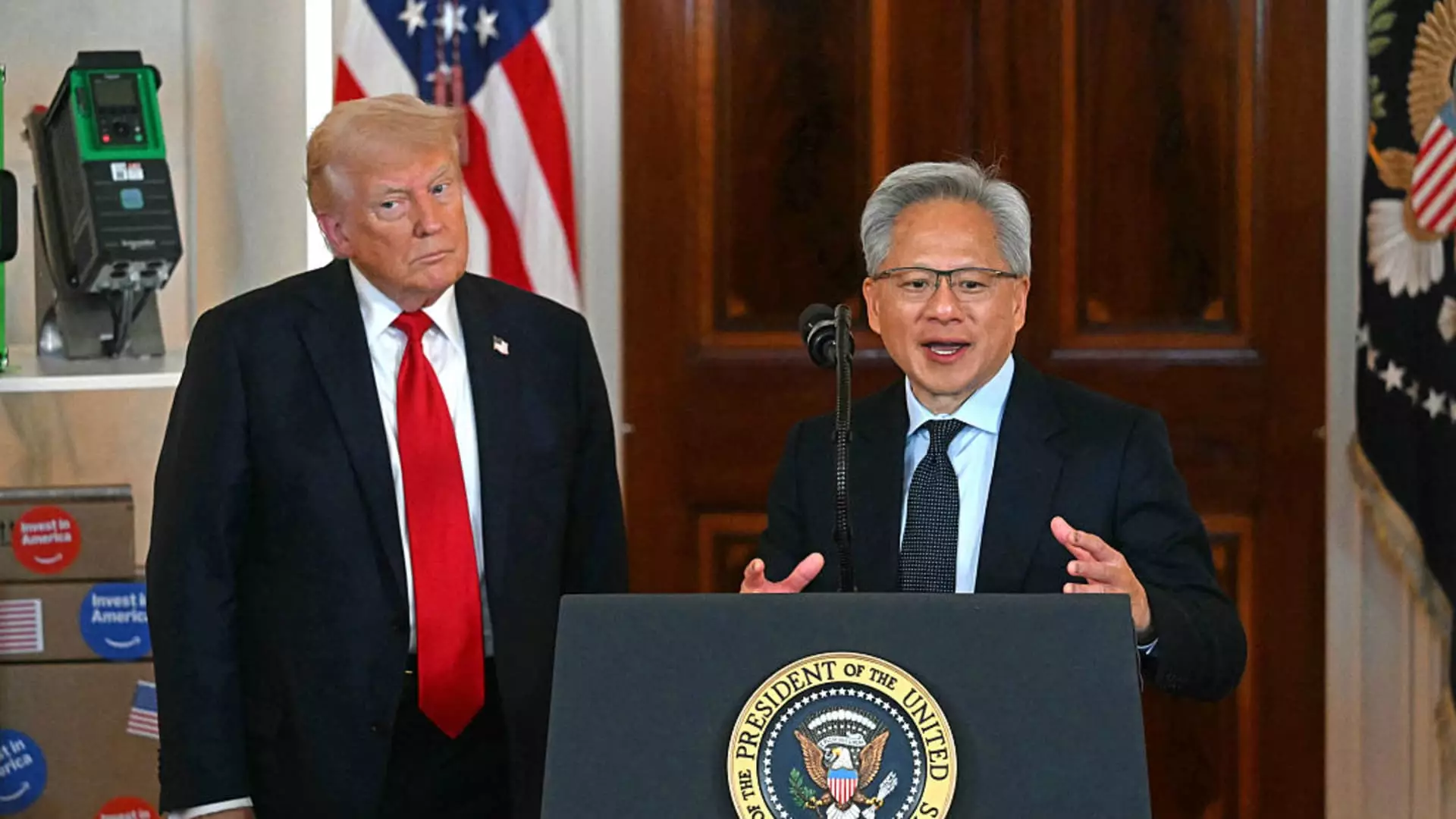In an era defined by technological supremacy, ceding ground on key AI semiconductor exports to China marks a reckless abandonment of America’s strategic advantages. The decision by President Donald Trump to allow Nvidia and AMD to sell advanced AI chips—albeit in exchange for a revenue share—ranks as a troubling capitulation. This isn’t just about economics; it’s about forfeiting long-term dominance in a domain critical to national security and future geopolitical influence. As the world races to harness AI’s vast potential, the United States should be doubling down on innovation, not diluting its market power through questionable revenue-sharing schemes that compromise its competitive edge.
The argument that these chips merely serve civilian purposes is increasingly flimsy. Critics, including some senators from the center-right spectrum, rightly warn that enabling China’s access to high-end AI semiconductors could inadvertently bolster its military capabilities. This risk isn’t hypothetical; history illustrates how technological transfer without safeguards can be exploited by rivals. The notion that China won’t leverage these chips militarily is naive. Strategic autonomy requires resisting temptations to monetize technology at the expense of national security—yet the current approach seems driven by immediate monetary gains, neglecting the larger, more perilous future.
Revenue-Sharing: A Faustian Bargain
The Trump administration’s decision to accept a 15% revenue cut from AI chip sales to China signals a troubling shift in priorities. This arrangement resembles a Faustian bargain—our national security and global influence traded for quick profits. The logic behind this deal appears shortsighted: why sacrifice the U.S.’s technological advantage now, only to regret the loss of dominance later? Such a revenue scheme risks incentivizing companies to prioritize short-term gains while eroding the foundation of American innovation.
Furthermore, the narrative that these chips are purely commercial is misleading. Intel, AMD, Nvidia—all these companies thrive because of their technological leadership, maintained through rigorous research and development. Letting China access top-tier AI chips under a revenue-sharing plan dilutes this leadership. Suppose China begins manufacturing its own competitive chips rapidly, leveraging any knowledge gained. In that case, the U.S. risks being permanently edged out of the AI arena, a scenario with profound implications for future technological and military superiority.
Political Bluster Masks Deep Strategic Failures
The vehement dismissal by the Trump administration—blaming Democrats for purportedly neglecting security concerns during previous administrations—fails to address the core issue: policy coherence. Their response seems more like political posturing than a serious assessment of risks. It’s a distraction from the fact that decisions made now will echo for decades. White House spokesperson Kush Desai’s dismissive tone underscores this shortsightedness; it’s more about political narratives than genuine national defense considerations.
The reality is stark: China is not welcoming U.S. chip exports with open arms. Instead, Chinese authorities are moving to limit their purchases, signaling a deepening techno-economic decoupling. This dissonance between U.S. policy and Chinese reactions reveals the gravity of the mistake being made—praised by some as “opening markets” but in reality, surrendering strategic infrastructure under the guise of economic diplomacy.
> When a nation sacrifices its future technological leadership for short-term financial gains, it risks becoming a subordinate player on the global stage. The United States must recognize that strategic control over cutting-edge technology is paramount. Compromising this for revenue or political expedience is a gamble that could cost the country its position as the world’s innovation leader, leaving it vulnerable to future adversaries. The current policy choices are not just misguided—they are perilous.

